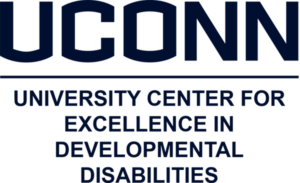AAC Institute Provides a Plethora of Resources, Products and Publications
By Katya Hill, PhD, CCC-SLP, Associate Professor Communication Science and Disorders, University of Pittsburgh
In today’s digital age, we are all in search of the one-shot resource to meet all of our online query needs.
The AAC Institute, established in 2000, is that resource for individuals interested in enhancing the communication of people who rely on augmentative and alternative communication.
“We want all individuals to have access to the most effective communication possible for people who rely on AAC,” says Katya Hill, PhD, executive director, AAC Institute. “We do this by offering many free or low-cost resources that include methods, tools, evidence, directories, services, education and so much more.”
What can you find on the AAC Institute web site? <hyperlink AAC Institute to www.aacinstitute.org>. Today’s professionals are interested in continuing educational development and the AACI provides free CEUs for their self-study web-based courses, several leading AAC and assistive technology conferences such as Closing the Gap, ATIA and CSUN, and helps in the management of other conferences such as the CAAC Research Conference, AAC Evidence-Based Practice Symposium, and the Pittsburgh Employment Conference for Augmented Communicators (PEC). Don’t miss our new upcoming newsletters by remembering to join the AAC Institute’s mailing list <hyperlink mailing list to http://www.aacinstitute.org/listmap.html> to get periodic updates on events, resources and articles on current AAC assessment, intervention and funding issues.
For the past two years, the AAC Institute has been involved in organizing the 15th biennial conference of the International Society for Augmentative and Alternative Communication (ISAAC) or ISAAC 2012 <hyperlink ISAAC2012 to www.isaac2012.org> along with USSAAC, the United States Chapter of ISAAC and SHOUT, a non-profit Pittsburgh organization dedicated to AAC. ISAAC returns to the U.S. after almost a ten year hiatus and promises to be a conference full of innovations starting with the first full AAC camp as part of pre-conference weekend. ICAN™ Talk Clinics <hyperlink ICAN™ Talk Clinics to www.aacinstitute.org/icantalk/index.html > started the first AAC camp in Pittsburgh last summer which serves as a pilot camp for ISAAC 2012. AAC Institute plans to make the camp a permanent part of their clinical service.
In addition, ISAAC 2012 has a conference program for all AAC and assistive technology stakeholders with special days focusing on autism, apps & tablets, and adults with ALS and neurological communication disorders with an exhibit hall open to the public. “I’m proud that we have a program that meets the expectations and needs of practitioners, educators, families, and AAC speakers,” explains Dr. Hill. “The City of Pittsburgh has a reputation as a community supporting accessibility, diversity and quality healthcare and public resources for individuals with disabilities.”
AAC Institute and ICAN™ Talk Clinicians will be presenting and exhibiting at ISAAC 2012. Dr. Rachel Harkawik, graduate of the Medical Speech Pathology Clinical Doctorate program at the University of Pittsburgh and newly appointed associate clinical director invites you to come to an AACI clinician’s session or stop by the booth to find out more about the quality, language-based AAC services setting a model in Pittsburgh. “Our clinicians provide innovative, comprehensive, family and community-based services to meet the complex communication needs of individuals across the life span,” says Dr. Harkawik. “We believe that to the highest performance communication is achieved when applying the principles of evidence-based practice and performance measurement.”

